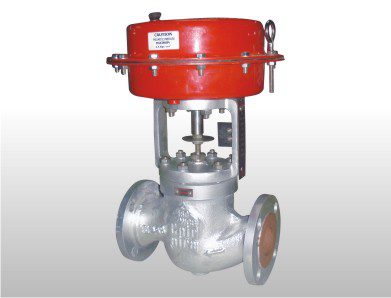
In the world of industrial automation and fluid control, choosing the right control valve manufacturer is crucial. Control valves are pivotal in regulating the flow of liquids, gases, and slurries within a system, impacting the efficiency, safety, and longevity of your operations. Given the complexity and importance of this equipment, selecting a manufacturer that aligns with your needs is essential. This guide will walk you through the key considerations when selecting control valve manufacturers, ensuring you make an informed decision that benefits your business.
Understanding Control Valve Requirements
Before diving into the selection of a control valve manufacturer, it’s important to have a clear understanding of your specific requirements. Different applications demand different types of control valves—be it globe valves, ball valves, butterfly valves, or others. Each type serves distinct functions, and the right choice depends on factors such as pressure, temperature, flow rate, and the nature of the medium being controlled.
Knowing these requirements will allow you to communicate effectively with potential manufacturers and ensure that they can meet your operational needs. For instance, if your process involves handling corrosive materials, you’ll need a manufacturer that offers valves made from materials resistant to corrosion. Understanding your operational parameters is the first step in narrowing down your options for control valve manufacturers.
Quality and Certifications
When it comes to control valves, quality cannot be compromised. The performance and durability of control valves are directly tied to the quality of materials used and the precision of their manufacturing processes. Therefore, it’s crucial to choose control valve manufacturers that adhere to high standards of quality control and have the necessary certifications.
Look for manufacturers that are ISO 9001 certified, as this indicates that they follow stringent quality management systems. Additionally, certifications like ASME (American Society of Mechanical Engineers) and API (American Petroleum Institute) standards are important indicators of a manufacturer’s commitment to producing high-quality valves. These certifications ensure that the control valves you receive meet international standards, providing peace of mind that they will perform reliably in your application.
Customization Capabilities
Not all applications are the same, and sometimes, standard off-the-shelf solutions won’t meet your specific needs. In such cases, the ability of control valve manufacturers to offer customization is invaluable. Customization may involve designing a valve that can handle unique pressures or temperatures, or one that fits into an existing system with non-standard dimensions.
When evaluating manufacturers, inquire about their customization capabilities. A manufacturer that can work with you to design and produce a valve tailored to your exact specifications will likely save you time and money in the long run. Furthermore, a manufacturer with strong customization capabilities often has a robust engineering team, which is another positive indicator of their overall competence.
Technological Innovation
The field of control valves is continuously evolving, with new technologies emerging that enhance performance, reliability, and ease of use. When selecting control valve manufacturers, it’s important to consider their commitment to innovation. Manufacturers who invest in research and development are more likely to offer advanced solutions that incorporate the latest technologies.
For example, smart control valves with integrated sensors and digital controls are becoming increasingly popular in industrial automation. These valves can provide real-time data, enabling better monitoring and control of processes. By choosing a manufacturer that stays ahead of technological trends, you can benefit from the latest innovations, which can lead to improved efficiency and reduced operational costs.
Support and After-Sales Service
Even the best control valves require maintenance and occasional repairs. Therefore, the support and after-sales service provided by control valve manufacturers should be a critical factor in your decision-making process. Reliable manufacturers will offer comprehensive support, including installation assistance, maintenance services, and a readily available supply of spare parts.
Assess the manufacturer’s service network and response times. A manufacturer with a global or regional presence can offer quicker support, minimizing downtime in the event of a malfunction. Additionally, manufacturers that offer training programs for your staff can be particularly valuable, as this ensures that your team can operate and maintain the valves effectively.
Cost Considerations
While cost should never be the sole determining factor, it is certainly an important consideration when choosing control valve manufacturers. A balance must be struck between cost and quality. Opting for the cheapest option might save you money upfront, but it could lead to higher costs in the long run due to frequent repairs, lower efficiency, and shorter valve lifespan.
Instead, look for manufacturers that offer competitive pricing without compromising on quality. Request quotes from multiple manufacturers and compare not just the initial cost but also the total cost of ownership (TCO), which includes maintenance, energy consumption, and the expected lifespan of the valves.
Reputation and References
Finally, the reputation of control valve manufacturers in the industry can provide valuable insights into their reliability and quality. Research reviews, testimonials, and case studies to understand the experiences of other customers. Manufacturers with a solid track record and positive feedback are likely to be more trustworthy and reliable.
Additionally, don’t hesitate to ask for references. Speaking directly with other customers can provide firsthand information about the manufacturer’s performance, customer service, and product quality. A reputable manufacturer will be more than willing to provide references and may even arrange site visits to showcase their installations.
Conclusion
Choosing the right control valve manufacturer is a critical decision that can significantly impact the efficiency and safety of your operations. By considering factors such as quality, customization capabilities, technological innovation, support services, cost, and reputation, you can make an informed choice that meets your specific needs. Remember, the right control valve manufacturer is not just a supplier but a partner who contributes to the success of your operations.